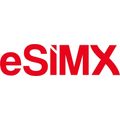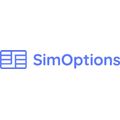Itinérance de données facile sans extras cachés. Les clients Breeze eSIM peuvent rester connectés dans plus de 190 pays grâce à une connectivité de données compatible 5G. Pas de cartes SIM en plastique compliquées à changer et pas de numéro de téléphone changeant, scannez simplement votre code QR et installez votre forfait d'itinérance de données pour une connectivité instantanée.

Itinérance de données facile sans extras cachés. Les clients Breeze eSIM peuvent rester connectés dans plus de 190 pays grâce à une connectivité de données compatible 5G. Pas de cartes SIM en plastique compliquées à changer et pas de numéro de téléphone changeant, scannez simplement votre code QR et installez votre forfait d'itinérance de données pour une connectivité instantanée.
Code Promo
Forfaits de données eSIM Breeze pour le Bahreïn
Questions fréquemment posées
Breeze offre-t-il une eSIM à données illimitées pour le Bahreïn?
Breeze ne propose pas de eSIM à données illimitées pour le Bahreïn. Tous les plans Breeze vendus au Bahreïn ont des plafonds de données fixes, y compris les options les plus importantes : un plan de 100 Go valable pendant 30 jours au prix de 82, 00 USD et un plan de 75 Go valable pendant 30 jours au prix de 65, 00 USD, tous deux utilisant la 5G. Ces plans à données fixes donnent aux voyageurs des limites d'utilisation prévisibles. Pour la plupart des voyageurs, en particulier ceux qui n'ont pas besoin d'un très grand volume de données, un plan fixe peut être plus rentable qu'une offre illimitée, qui n'est dans ce cas pas disponible.
Breeze propose-t-elle une eSIM du Bahreïn avec numéro de téléphone et SMS?
Breeze n'offre pas de plans eSIM Bahrain qui comprennent un numéro de téléphone local ou une capacité SMS. Les voyageurs qui achètent une eSIM Breeze pour Bahrain ne reçoivent qu'un plan uniquement en données. Si vous avez besoin de communiquer pendant votre séjour à Bahreïn, vous pouvez utiliser des services VoIP tels que WhatsApp, Telegram ou iMessage via la connexion de données.
Combien de forfaits de données Breeze propose-t-il pour Bahreïn ?
Breeze propose une gamme de forfaits de données pour Bahrain qui comprend à la fois des options monopays et multi‑pays. En tout, 20 forfaits monopays sont disponibles sur Bahrain, tandis que 37 forfaits multi‑pays sont également proposés aux voyageurs qui ont besoin d’une couverture au-delà de Bahrain. Les forfaits couvrent une fourchette de prix allant d’environ 4, 00 $ à 400, 00 $ et offrent des plafonds de données de 1 GB à 100 GB. Certains forfaits disposent d’une quantité de données fixe qui reste constante pendant toute la durée de validité, tandis que d’autres utilisent un plafond quotidien réinitialisé chaque jour dans une période de validité de 1 à 30 jours.
Résumé avec Gen AI. Dernière mise à jour:



